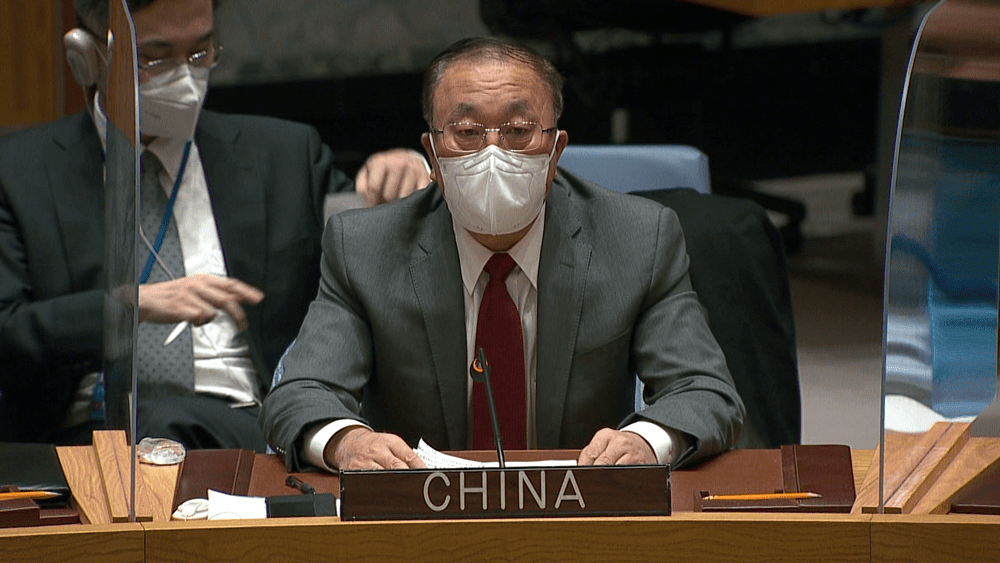New York, 1 February 2022 (TDI): The Permanent Representative of China to the United Nations, Ambassador Zhang Jun urged for quiet diplomacy as opposed to megaphone diplomacy. He gave this statement about Ukraine.
China’s permanent representative to the United Nations, Zhang Jun @ChinaAmbUN, on Monday called for quiet diplomacy instead of megaphone diplomacy on the tensions between Russia and Ukraine. https://t.co/or6FuvJIkc pic.twitter.com/vr8unMAudW
— China News 中国新闻网 (@Echinanews) February 1, 2022
China and Russia voted against a Security Council meeting on Ukraine in a procedural vote. However, the meeting went ahead despite the opposition of China and Russia because 10 other council members voted in favor of the meeting.
China has opposed the Security Council’s convening the meeting at the behest of the United States (US). The United States claimed that Russia’s deployment of troops on the border with Ukraine posed a threat to international peace and security.
The claim was made in a letter to the President of the Security Council dated January 27. Nevertheless, Zhang Jun stated that China cannot agree with such a claim. He further expressed that China is paying close attention to the situation.
The Ambassador pointed out that some countries spearheaded by the US, claim that there is a threat of war in Ukraine. Au contraire, Russia has repeatedly communicated that it has no intent to launch any military action.
Moreover, Ukraine has also made it clear that it doesn’t need a war. In the backdrop of such a scenario, the Chinese Representative enquired what the basis was for the countries to insist on a probability of war?
Ukraine, the US as well as the relevant European countries, and NATO have different forms of diplomatic contact with Russia. China urges all the parties to resolve their differences via negotiations and dialogues.
China’s stance on Ukraine is persistent. The Chinese Ambassador enunciated that for the resolution of the issue, the new Minsk Agreement should be implemented in true letter and spirit.
The Minsk Agreement is endorsed by the UN Security Council in its Resolution 2202. It is recognized by all parties and should be effectively implemented. In addition, China supports all efforts in line with the agreement.
Likewise, China expects all concerned parties to show willingness for the implementation of the agreement. What’s more, the differences arising from the implementation of the agreement should be resolved through consultations.
I'm a detail-oriented, problem-solving, persistent multitasker. Having a magna cum laude MSc. in Strategic Studies from National Defense University, Pakistan, I believe in peaceful discourse & dialogue and have built my interest in nontraditional security threats.
I am an experienced writer with a primary focus on public policy, environmental security, nuclear strategy, and geopolitics!








